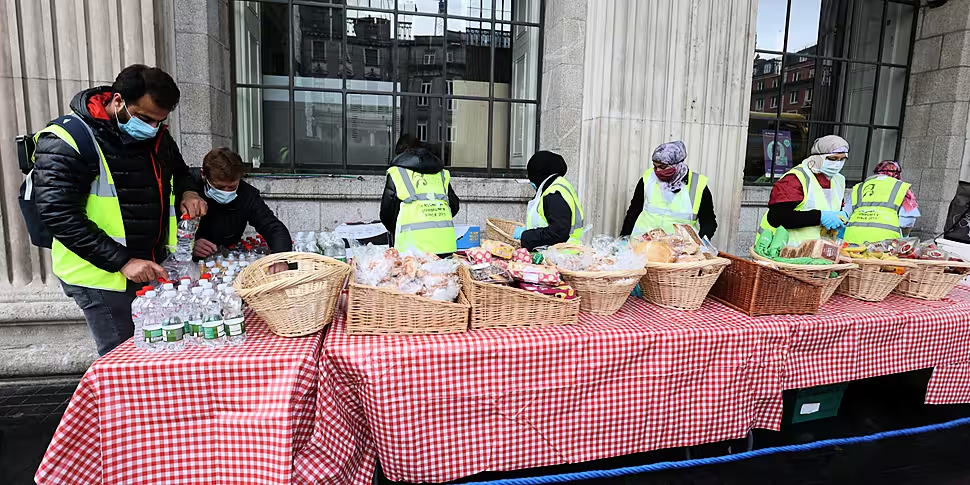A former homeless man has questioned proposals in Dublin City Council to require permits from food services.
Under the proposals, food providers would need to become a registered charity and pay a fee to obtain the permit.
Rigger and former homeless man Andi Flack told The Pat Kenny Show he isn’t sure if these restrictions are right.
“Regulation can be a good thing,” he said. “And it can be a very bad thing at the same time."
'They just want to help'
He said it makes sense to ensure food services to the homeless are safe – but he hasn’t had problems in his own experience.
“You’ve got groups out there feeding their families, but just cooking a bit more and bringing it out [to food services],” he said.
“They’re not planning on poisoning their families.”
Mr Flack said he does not want to see any conflict between local authorities and homeless food services.
“Why are we trying to regulate normal people that just actually want to help?” he said. “Regulation costs money.”
'Sense of community'
Mr Flack said the ability to eat through food services was “amazing” when he was homeless.
“It takes so much pressure off yourself,” he said. “You can understand why people fall off even further if you can't get simple things like shelter and food."
He discovered Mustard Seed Food Run when another homeless person offered him food.
“What was really nice about that was there was almost a sense of community,” he said. “You weren't classed as an outsider.
“The people serving the food treat you like a person, like a friend.”
 The Mendicity Institution on Usher's Island, Dublin. Image: Sam Boal/Rollingnews.ie
The Mendicity Institution on Usher's Island, Dublin. Image: Sam Boal/Rollingnews.ieMendicity CEO Louisa Santoro told the show Ireland is not short of regulatory authorities – but people have an "adversarial" relationship with them.
“We want regulation to be something that [says] we can offer people best-in-class service,” she said. “But [it depends on] whether or not this comes in a way that is supportive or whether it comes as something that is seen more as a penalty.”
'The right standards'
As Dublin’s oldest working charity, Mendicity is regulated by the Food and Safety Authority and other regulatory bodies, and offers hot meals six days a week and grocery packages.
“We want to make sure that people are meeting the right standards if they're going to deliver services to people who are vulnerable,” Ms Santoro said.
“We have to look at the whole sector – not just the food services on the streets, but food services across the sector.
“That is where regulation should start.”









